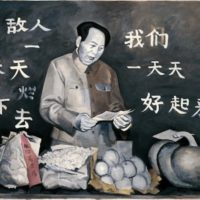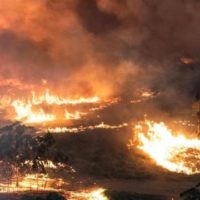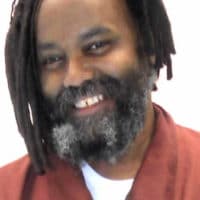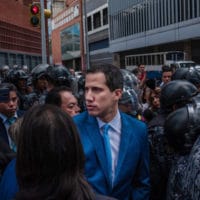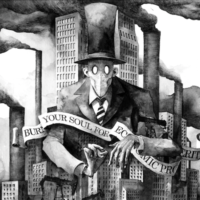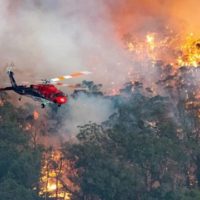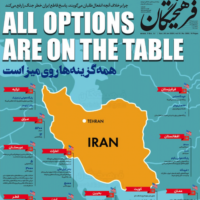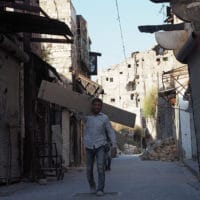-
Your arrow can pierce the sky, but ours has gone into orbit
On Wednesday, 15 January, China and the United States agreed to suspend their full-scale trade war. From February 2018, the United States placed tariffs on Chinese goods that entered the US market, and then China retaliated. This tit-for-tat game continued for almost two years, causing massive disruption in the global value chain.
-
Britain exits the European Union and takes a sharp right turn
This article assesses the two recent historic events in Britain: the exit of Britain from the imperialist bloc known as the European Union (EU); and the crushing electoral defeat of the Labour Party. Neither Brexit, nor Labour’s defeat, can be understood in isolation from the other.
-
Jeff Bezos donates three minutes’ income to help Australia fight wildfires
The donation would be equivalent to someone who earned $500 per week announcing on social media that they had just donated five cents to help tackle the blazes.
-
Fossil fuel political giving outdistances renewables 13 to one
During the latest midterm election cycle, the fossil fuel industry paid at least $359 million for federal campaign donations and lobbying.
-
‘Grévolution’: first round of a general strike
Since the middle of December, France has been gripped by a wave of large scale strikes. In this article the French collective Plateforme d’Enquêtes Militantes analyses the composition of the strikes, and the potential for its continued escalation.
-
Not an inch: Indian students stand against the far-right
With her head bandaged and her arm in a sling, university student Aishe Ghosh went before the cameras to say that the students of the university she attends in New Delhi would move “not an inch back.”
-
Covering the Paradigm Crisis with Alexandra Scaggs
Alexandra Scaggs joins Money on the Left to discuss her experience covering the ongoing paradigm crisis in mainstream economics, central banking and finance—and why leftists should be paying close attention.
-
Australia’s profit-driven apocalypse
Some firefighters report flames 150 metres high. Read that again, slowly. Flames 150 metres high. Higher than a 40 storey building.
-
Uncle Sam the hit man
Mumia Abu Jamal, the nation’s best known political prisoner, says the U.S. is living up to its reputation as an international assassin with its hit on an Iranian general on Iraqi soil. “America is more hated today than ever,” said Abu Jamal, co-author of the multi-volume book, “Murder, Incorporated.”
-
Don’t buy the “marketplace of ideas”
Economic imagery pervades societal discourse. Part of this imagery projects markets as existing everywhere; the common societal parlance sees talk of the car market, the grocery market, the computer market, or, simply, the market.
-
NLG calls upon U.S. to immediately comply with International Humanitarian Law in its illegal occupation of the Hawaiian Islands
As the longest running belligerent occupation of a foreign country in the history of international relations, the United States has been in violation of international law for over a century.
-
Bolivia’s new right-wing government intensifies crackdown on journalists, doctors
The U.S.-backed administration of Jeanine Añez is arresting prominent members of the press and even doctors in what it calls a “dismantling of the propaganda apparatus of the dictatorial regime of Evo Morales.”
-
For Western Press, the only Coup in Venezuela is against Guaidó
The international corporate media have entered crisis mode following the replacement of Venezuelan opposition leader Juan Guaidó as head of the country’s National Assembly.
-
Misrepresenting Marx’s Ecology: A Response to Daniel Tanuro’s “Was Marx an Ecosocialist?”
Daniel Tanuro is an agricultural engineer and leading socialist activist who has made numerous contributions to ecosocialist thought and practice, most notably, in his book Green Capitalism: Why It Can’t Work. Yet, this has been coupled with persistent claims that there are “fundamental flaws” in Karl Marx’s ecological critique of capitalism.
-
How getting rid of ‘shit jobs’ and the metric of productivity can combat climate change
Yes, we’ll be less efficient. But we’ll be happier, more useful and better able to tackle climate change.
-
The limits of capitalism
At this point in human history, the limits of capitalism and the limits of our species’ life on Earth have converged. We have never been here before, and we cannot go back.
-
Climate scientist: I witnessed Australia on fire. Climate change is already here.
Prior to beginning my sabbatical stay in Sydney, I took the opportunity this holiday season to vacation in Australia with my family. We went to see the Great Barrier Reef—one of the great wonders of this planet—while we still can. Subject to the twin assaults of warming-caused bleaching and ocean acidification, it will be gone in a matter of decades in the absence of a dramatic reduction in global carbon emissions.
-
No, Iran didn’t exit the nuclear deal. And no, its nuclear announcement is not revenge for Soleimani.
On January 5, Iran made a major announcement regarding its nuclear program, stating that it will no longer observe limits on the number of centrifuges that it uses to enrich uranium. While the announcement is significant, it was not altogether unexpected. And it most certainly does not constitute the “harsh revenge” that Iran’s supreme leader, Ayatollah Ali Khamenei, promised following the killing of Qasem Soleimani last week.
-
Cornel West interview
Let’s begin with Prophesy Deliverance. What you do in this book is incredible. You draw from Martin Luther King, Malcolm X, then the famous Afro-centrist Professor James E. Cohn, and then the pragmatic tradition with which you were already familiar while you were doing PhD work at Princeton. Then you put them together and, much more importantly, you also do something extraordinary.
-
Sanctioning Syria
U.S. measures are the most punitive of overlapping sanctions regimes also applied by the European Union, Japan, Canada, Australia and others. The U.S., in the words of a former U.S. ambassador to Syria, Robert Ford, is waging “economic war” to “strangle to death” Assad’s government. The casualties are the poor, the sick and children—not the political and business elite.

